List<Block> blocks = ...;
Stream<Block> blocksStream = blocks.stream();
Stream<SquashedBlock> squashedStream =
blocksStream.map(Block::squash);Core Java. Lecture #9
Streams API, Optionals
@inponomarev
Ivan Ponomarev, Synthesized.io/MIPT
Streams
Appeared in Java8, along with lambdas & method references.
Process finite and potentially infinite data sets.
Declarative approach to data processing: we describe what we want to get, not how we will get it.
Transparent parallelism.
Convert stream to stream
| (The author of the animations is Tagir Valeev, see moving pictures here) |
Filtering
| |
Display in the console (terminal operation)
| |
All together in one line
|
Does it resemble something?
"Merge two files, convert lines to lowercase, sort, display the last three lines in alphabetical order"
cat file1 file2 | tr "[A-Z]" "[a-z]" | sort | tail -3Why?
Java 7 | Java 8 |
| |
Three categories of Stream API methods
//Create a stream
List<String> names = menu.stream()
//Intermediate operations
.filter(d -> d.getCalories() > 300
.map(Dish::getName)
.limit(3)
//Terminal operation
.collect(Collectors.toList());Creating a stream
//Empty stream
Stream<Foo> stream0 = Stream.empty();
//Enumerating elements
Stream<String> stream1 =
Stream.of("gently", "down", "the", "stream");
//From an array
Stream<String> stream2 =
Arrays.stream("gently down the stream".split(" "));
//From a collection
List<String> strings = ...
Stream<String> stream3 = strings.stream();
//From API
Path path = Paths.get(...);
Stream<Path> stream4 = Files.list(path);Concatenation of streams
Stream<Foo> s1 = ...;
Stream<Foo> s2 = ...;
Stream<Foo> s = Stream.concat(s1, s2);Generating streams
//Using a generator
Stream<Double> randoms =
Stream.generate(Math::random); //ALTHOUGH IT IS BETTER
DoubleStream doubles =
ThreadLocalRandom.current().doubles()Producing stream elements with iterate
//Iteratively
Stream<Integer> integers =
Stream.iterate(0, x -> x + 1); //ALTHOUGH IT IS BETTER
IntStream range = IntStream.range(0, 1000);What is the contents of this stream?
Stream.iterate(new int[]{0, 1},
t -> new int[]{t[1], t[0] + t[1]})
.mapToInt(t -> t[0]);Spliterator: the most common way to create a stream
public interface Spliterator<T> {
boolean tryAdvance(Consumer <? super T> action);
Spliterator<T> trySplit();
long estimateSize();
int characteristics();
}StreamSupport.stream(Spliterator<T> spliterator, boolean parallel)Intermediate conclusions
There are many standard ways to generate streams, for simple cases you do not need to "reinvent the wheel"
Most likely, you will not need to implement
Spliteratoryourself.For the sake of performance, there are "primitive streams" (three types):
IntStream(more efficient than`<Integer>Stream`)LongStream(more efficient than`<Long>Stream`)DoubleStream(more efficient than`<Double>Stream`)
Convert streams to streams: getting "head" and "tail"
//Stream interface methods
//head
Stream<T> limit(long maxSize)
Stream<T> takeWhile(Predicate<? super T> predicate)
//tail
Stream<T> skip(long n)
Stream<T> dropWhile(Predicate<? super T> predicate)filter
|
map
|
flatMap
Path path = ...
Pattern separator = Pattern.compile("\\s");
try(Stream<String> lines = Files.lines(path, StandardCharsets.UTF_8)) {
//NOT what we need!
//Stream<Stream<String>> streamStream =
// lines.map(separator::splitAsStream);
//Just what we need!
Stream<String> words = lines.flatMap(separator::splitAsStream);
words.forEach(System.out::println);
}
/*А также flatMapToDouble, flatMapToInt, flatMapToLong*/filterиmap— это частные случаиflatMap!
distinct
//Internal Set
Stream.of(1, 5, 8, 7, 8, 5, 9, 9)
.distinct()
.forEach(System.out::println);
//Outputs 1, 5, 8, 7, 9What happens when you execute this code?
ThreadLocalRandom.current().ints(1, 10)
.distinct()
.forEach(System.out::println);The program will hang when all values from 1 to 10 are exhausted. You can fix it, for example, by specifying limit(9) after distinct.
sorted
//Internal sorted list
Stream.of(1, 5, 8, 7, 8, 5, 9, 9)
.sorted()
.forEach(System.out::println);
//Outputs 1, 5, 5, 7, 8, 8, 9, 9
//Doesn't make sense for infinite streamspeek — debug method
|
Gatherers: Фиксированное окно
flatMap наоборот
Stream<List<Integer>> fixed =
Stream.of(1, 2, 3, 4, 5, 6, 7, 8, 9)
.gather(Gatherers.windowFixed(3));
println(fixed.toList());[[1, 2, 3], [4, 5, 6], [7, 8, 9]]Gatherers: Скользящее окно
Отлично подходит для расчёта moving average:
Stream<List<Integer>> sliding =
Stream.of(1, 2, 3, 4, 5, 6)
.gather(Gatherers.windowSliding(3));
println(sliding.toList());[[1, 2, 3], [2, 3, 4], [3, 4, 5], [4, 5, 6]]Gatherers: scan
Подсчёт накопленного итога
Stream<Integer> sum =
Stream.of(3, 5, -2, 7)
.gather(Gatherers.scan(
//initial value supplier
() -> 0,
//scanner function to apply to each element
Integer::sum));
println(sum.toList());[3, 8, 6, 13]Terminal operations
//Present the first element
Optional<T> findFirst();
//Present any element
Optional<T> findAny();
//Check to see if the condition is satisfied by...
//...at least one element
boolean anyMatch(Predicate<? super T> predicate);
//...all the elements
boolean allMatch(Predicate<? super T> predicate);
//...no element
boolean noneMatch(Predicate<? super T> predicate);
//SHORT CIRCUITING!forEach
void forEach(Consumer<? super T> action);In the case of parallel execution, there are no guarantees of consistency
There is no guarantee as to which thread the lambda will be executed on
toList (Java16+)
List<T> toList()Stream<Foo> myStream = ...
List<Foo> list = myStream.toList();Материализует поток в список.
Возвращаемый список — неизменяемый.
Доступно с версии 16.
reduce (with identity)
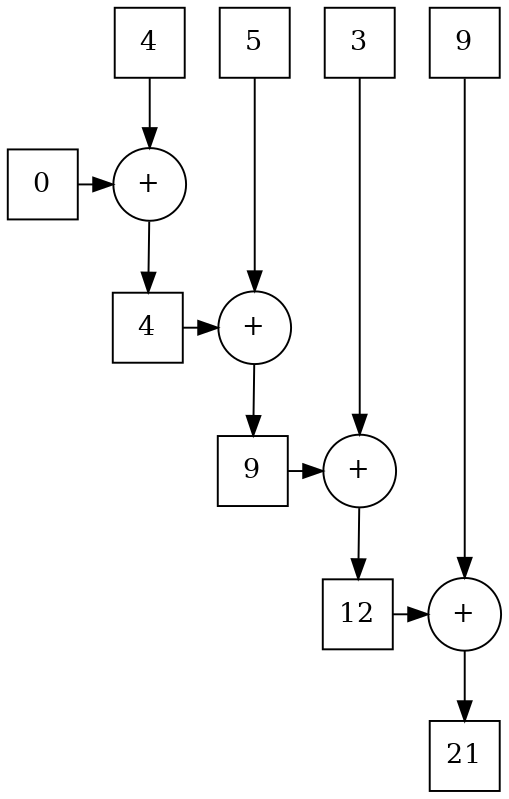 |
|
Parallel reduce
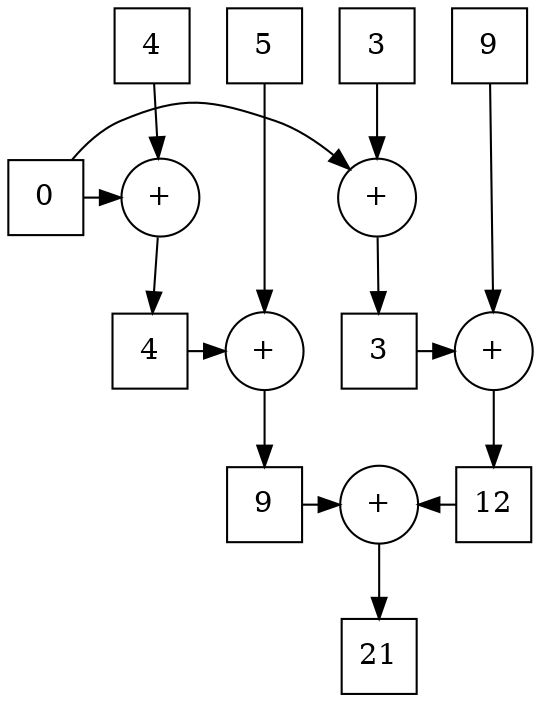
reduce without identity
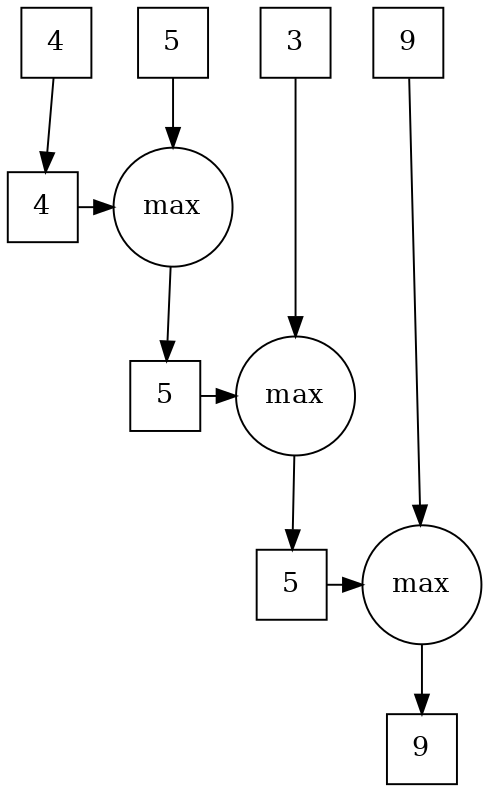 |
|
Ready-made 'reduce' operations
Available in all streams:
count— generally it requires all elements to be computed!max(Comparator),min(Comparator)
Available in streams of primitives:
sumaveragesummaryStatistics— count, sum, min and max in a single method.
collect: the most flexible method of assembling the results
Type parameters:
T— type of stream elementsAis the type of accumulator, the intermediate data structure in which everything is collectedR— result type
Unlike
reduce, which works with immutable objects, it mutates the accumulator.
<R, A> R collect(Collector<? super T, A, R> collector);Collector<T, A, R> interface
T— type of stream elementsAis the type of accumulator, the intermediate data structure in which everything is collectedR— result type
public interface Collector<T, A, R> {
Supplier<A> supplier();
BiConsumer<A, T> accumulator();
Function<A, R> finisher();
BinaryOperator<A> combiner();
Set<Characteristics> characteristics();
}
//For example:
class ToListCollector<T> implements
Collector<T, List<T>, List<T>>Интерфейс Collector<T, A, R>
Сделать собственный коллектор (как и собственный сплитератор) непросто,
Но и не нужно: есть много готовых и их можно комбинировать!
Most used collectors
//java.util.stream.Collectors
Collector<T, ?, List<T>> toList() // << use stream.toList() instead!
Collector<T, ?, Set<T>> toSet()
Collector<T, ?, C extends Collection<T>>
toCollection(Supplier<C> collectionFactory)
//Usage example
Stream<Foo> myStream = ...
Set<Foo> set = myStream.collect(Collectors.toSet());Collecting to maps
Collector<T, ?, Map<K,U>> toMap(
Function<? super T, ? extends K> keyMapper,
Function<? super T, ? extends U> valueMapper)
//Usage example
Stream<Person> people = ...
Map<Integer, Person> idToPerson = people.collect(
Collectors.toMap(Person::getId, p->p);You can also specify
mergeFunctionandmapSupplier.
Variations on the theme of the collecting
toUnmodifiable(List| Set| Map)yields an immutable collectiontoConcurrentMapyields a thread-safe map.
Delimited string
static Collector<CharSequence, ?, String> joining()
//Usage example
menuStream.map(Dish::getName).collect(Collectors.joining(", ");
//Do not forget that this can be done without streams:
static String join(CharSequence delimiter,
Iterable<? extends CharSequence> elements)Groupings
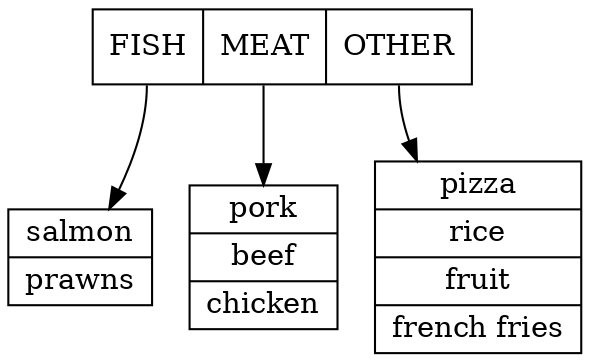
Map<Dish.Type, List<Dish>> dishesByType =
menu.stream().collect(Collectors.groupingBy(Dish::getType));Downstream Collectors
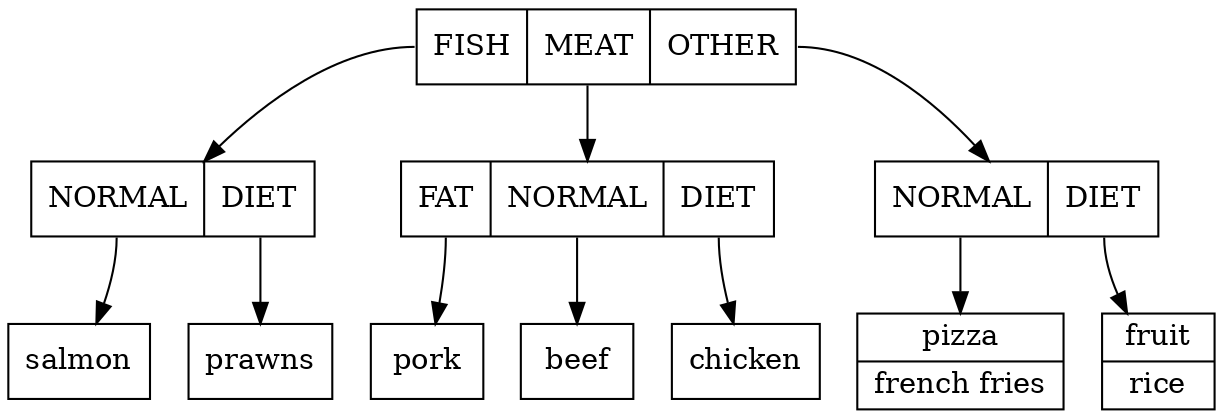
Map<Dish.Type, Map<Dish.CaloricLevel, List<Dish>>>
dishesByTypeAndCaloricLevel =
menu.stream().collect(Collectors
.groupingBy(Dish::getType,
Collectors.groupingBy(Dish::getCaloricLevel)));But we can perform other operations as well!
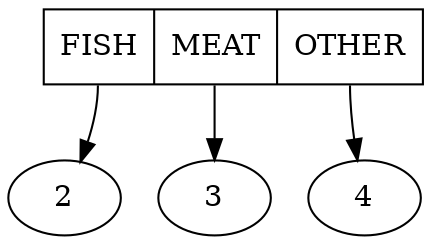
Map<Dish.Type, Long> typesCount =
menu.stream().collect(Collectors
.groupingBy(Dish::getType, Collectors.counting()));Downstream collectors set
/*All this is already present in the Stream API, but we need to apply it
to the "branched" stream.*/
/*"Terminal"*/
counting()
summingInt(ToIntFunction<? super T> mapper)
summingLong(ToLongFunction<? super T> mapper)
summingDouble(ToDoubleFunction<? super T> mapper)
maxBy(Comparator<? super T> comparator)
minBy(Comparator<? super T> comparator)Downstream collectors continued
/*Giving an opportunity to continue the chain*/
filtering(Predicate<? super T> predicate, downstream)
mapping(Function<? super T, ? extends U> mapper, downstream)
flatMapping(Function<? super T,
? extends Stream<? extends U>> mapper, downstream)
/*Adaptor*/
collectingAndThen(Collector<T,A,R> downstream,
Function<R,RR> finisher)When might collectingAndThen be needed?
Map<Dish.Type, Dish> mostCaloricByType =
menu.stream()
.collect(Collectors.groupingBy(Dish::getType,
collectingAndThen( //<-----ADAPTOR
Collectors.maxBy(Comparator
.comparingInt(Dish::getCalories),
//maxBy returns Optional
Optional::get)));Parallel streams
The
.parallel()method enables parallelization of processing.parallelcan be called anywhere in the call chain.It should be used with caution, understanding the limitations and applicability.
Optional: The container that contains an object. Or it doesn’t.
Quote from 'Java 8 in Action':
"Tony Hoare, one of the giants of computer science, said in a presentation at QCon London 2009: I call it my billion-dollar mistake. It was the invention of the null reference in 1965…. I couldn’t resist the temptation to put in a null reference, simply because it was so easy to implement."
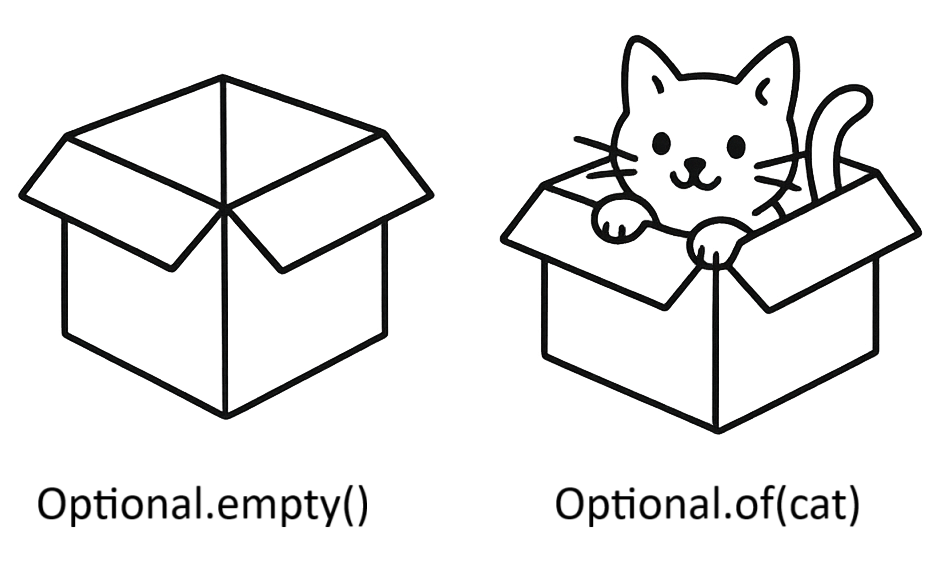
Optional<T> is like a stream of 0 or 1 element
//Creating
Optional.empty(); //empty optional
Optional.of(x); //NPE if x == null
Optional.ofNullable(x); //empty or containing x
//Unsheathing
o.get();
o.orElse(other);
o.orElseGet(()->calcOther());
o.orElseThrow(()->new IllegalStateException());Optional.map
Optional<Insurance> optInsurance = Optional.ofNullable(insurance);
Optional<String> name = optInsurance.map(Insurance::getName);Optional.flatMap
Optional<Person> person = ...
//person.map(Person::getCar) returns Optional<Optional<Car>>!!
String insuranceName = person.flatMap(Person::getCar)
.flatMap(Car::getInsurance)
.map(Insurance::getName)
.orElse("Unknown");Optional.filter
String insuranceName = person.filter(p -> p.getAge() >= minAge)
.flatMap(Person::getCar)
.flatMap(Car::getInsurance)
.map(Insurance::getName)
.orElse("Unknown");Rules of using Optional
Dumb usage of Optional is worse than null:
WRONG | OK |
| |
Rules of using Optional
A variable of
Optionaltype should never benull.Fields with the
Optionaltype are useless: checking for "not empty" of this field is no better than checking fornull, the price is an additional object.Never put
Optionalin a collection.In general,
Optionalis for return values, not method arguments.
When streams should not be used
Streams are liked by many
Sometimes people stop thinking, and "streamosis" happens
Tagir Valeev: Use Stream API simpler (or don’t use it at all)
What’s wrong?
collection.stream().forEach(...)The Collection class already has a forEach method, you do not need to create a stream.
What’s wrong?
collection.stream().collect(Collectors.toList())
collection.stream().collect(Collectors.toSet())
collection.stream().toList()/*more efficient*/
new ArrayList<>(collection)
new HashSet<>(collection)What’s wrong?
collection.stream().max(Comparator.naturalOrder()).get()/*Same with less garbage*/
Collections.max(collection)What did the author want to say?
stream.sorted(comparator).findFirst()stream.min(comparator)How to improve?
stream.collect(Collectors.counting())/*counting(), maxBy(), minBy(), reducing(), mapping(), etc collectors
are intended to be used in cascading groupingBy operations only!*/
stream.count()What’s wrong?!
collection.stream().count()/*Without counting the elements one after another!*/
collection.size()How to improve?
listOfLists.stream().flatMap(List::stream).count()/*The number of elements in each sublist is known!*/
listOfLists.stream().mapToInt(List::size).sum()How to improve?
stream.filter(condition).findFirst().isPresent()/*Why getting the element itself if we just need to check its presence?*/
stream.anyMatch(condition)How to improve?
stream.filter(condition).anyMatch(x -> true)
stream.map(condition).anyMatch(b -> b)
stream.map(condition).anyMatch(Boolean::booleanValue)
stream.map(condition).anyMatch(Boolean.TRUE::equals)/*Intricate variations on a trivial theme*/
stream.anyMatch(condition)How to improve?!
if(stream.filter(condition).count() > 0)/*This example is even worse than the previous ones,
because it traverses the whole stream! And the solution is the same:*/
if(stream.anyMatch(condition))How to improve?!
if(stream.count() > 2)/*We don't care how many there are if there are more than two*/
stream.limit(3).count()Conclusions
The "declarative" approach, "describing what, not as" does not devalue the understanding of how the calculation occurs.
Streams should be used wisely, and there are many cases where they should not be used.